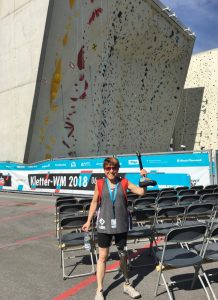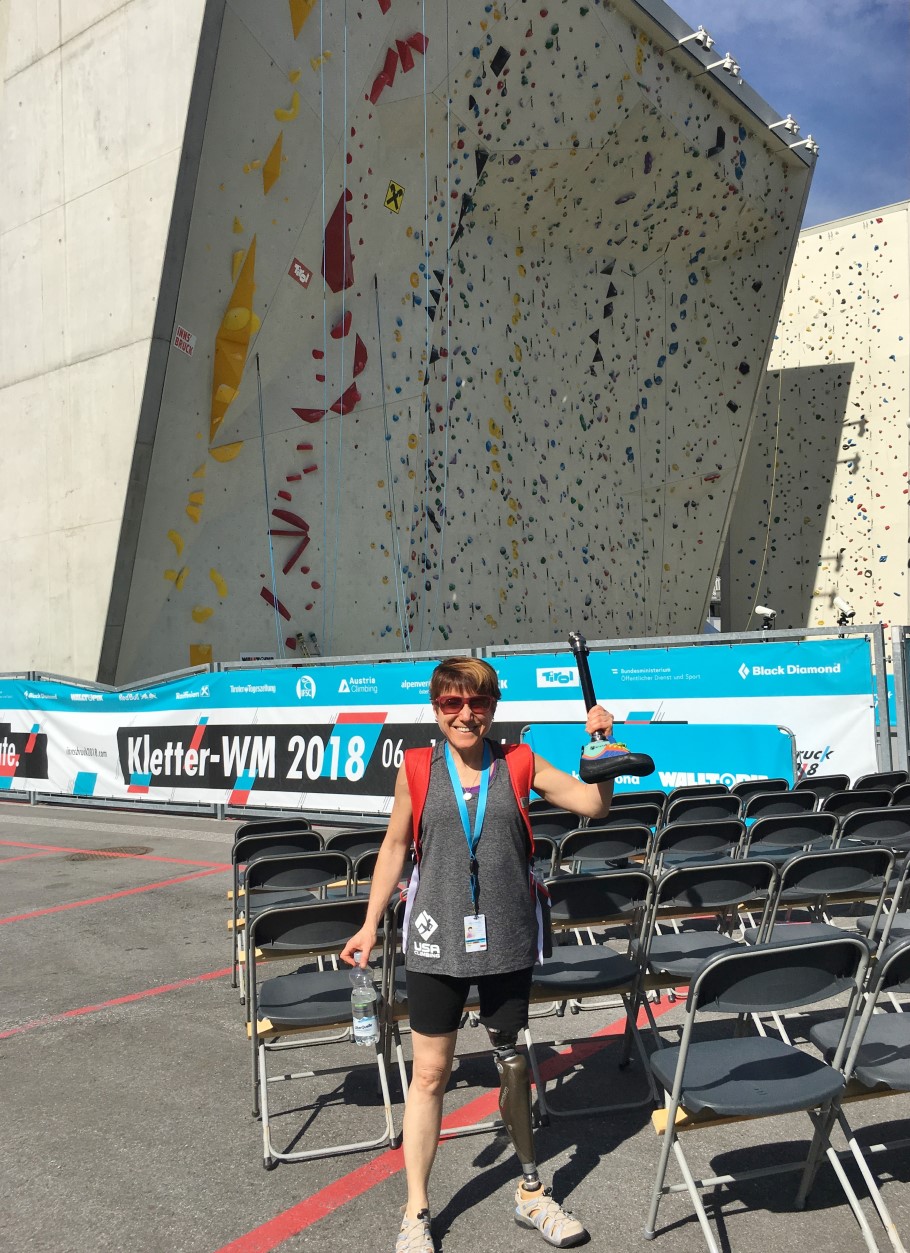
Rebecca Levenberg tackles wall climbing
More than eight years ago, when Rebecca Levenberg was patient at Magee, a young man knocked on the door to her room. Like Rebecca, he was an amputee. He was part of Magee’s Peer Mentor Program and was there to see if she’d like to talk. He was wearing sweatpants and apologized for being so casually dressed.
“I came here straight from work and the gym,” he explained.
Rebecca doesn’t remember much of what he said that day, but she remembers what he wore. The sweatpants indicating a just-completed workout, after a long workday, offered a glimpse into what her life could be like again someday.
On November 9, 2010, Rebecca, then 41, was hit by a truck while riding her bike to work. Her left leg was crushed, and she had severe internal injuries. A helmet saved her from a head injury. She was rushed to Thomas Jefferson University Hospital where she would spend six weeks in and out of surgeries, including the amputation of her left leg above the knee.
Rebecca’s first day as a patient at Magee was December 17, 2010. As fate would have it, her first day as an employee at Magee would come exactly eight years later: December 17, 2018. Rebecca is one of Magee’s newest Peer Mentor Coordinators.
“A big part of my job is to perceive where the patient and family are at the moment and what kind of support they feel they need,” Rebecca says. “No patient or family is the same.”
The Peer Mentor Program at Magee consists of specially-trained volunteers who have survived a spinal cord injury, brain injury, stroke, or amputation and have learned to adjust to their disability. Peer Mentor Coordinators match these volunteers with patients and families based on a number of factors, including their type of injury, age, gender, social circumstances, interests, and vocational experience.
Rebecca volunteered as a Peer Mentor for more than five years. She had worked in special education for 25 years prior to accepting her new job.
“Through my volunteer work, I developed a real passion for helping patients and families through this process,” Rebecca says.
For many patients and families, the reality of their disability begins to set in during the rehab stay. In the acute care hospital, right after an illness or injury, the focus often is on day-to-day survival. At Magee, the process of adjusting to a ‘new normal’ begins.
“A lot of my message to patients is what my care team instilled in me: that it’s not a matter of ‘can’ or ‘can’t.’ It’s a matter of ‘how,’” Rebecca says. “No one ever told me there was something I couldn’t do.”
Always an active person, Rebecca’s goals after injury included walking 1,000 miles on her new prosthetic leg and relearning how to bike and rollerblade. She’s picked up brand new hobbies since her injury, too, like rock climbing.
“When I first became an amputee, I had never met another amputee,” Rebecca says. “Now I am part of this exclusive club that I didn’t even know existed! I’ve met so many amputees who’ve supported me with strategies, persistence, and humor. Partnering with someone who’s been through it can have such an impact.”
Today, Rebecca lives in Old City and recently was a foster parent to an eight-year-old girl. Through it all, she still hears the voices of her therapists in her head, helping her to stay strong and problem-solve through life’s challenges.





